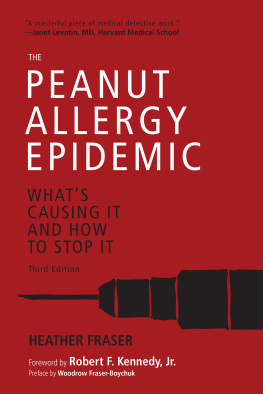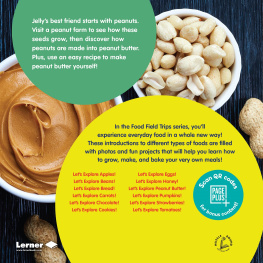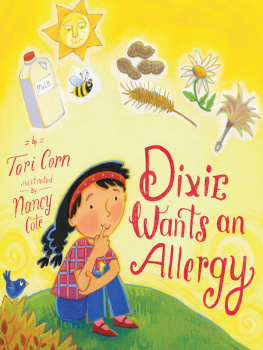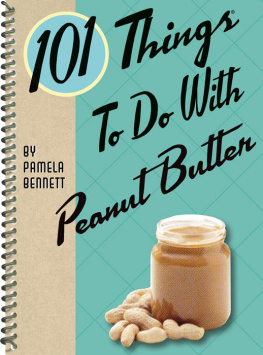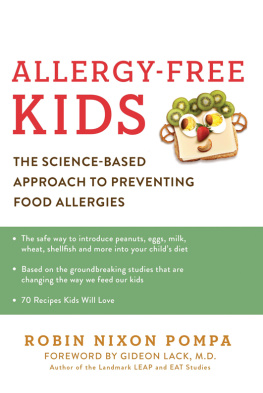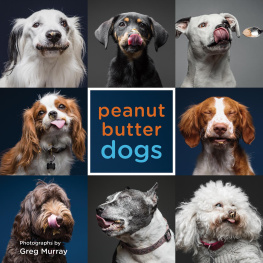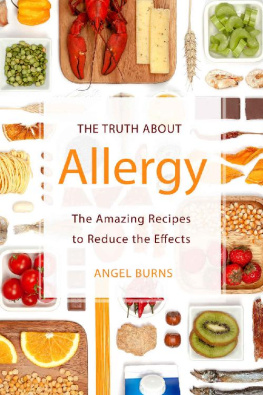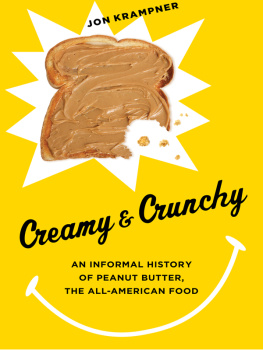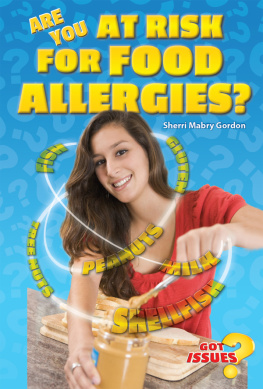ADDITIONAL PRAISE FOR
THE PEANUT ALLERGY EPIDEMIC
The Peanut Allergy Epidemic is a masterful piece of medical detective work. Fraser has succeeded in doing what numerous specialists have proven unable to doshe has uncovered the cause of this iatrogenic phenomenon and given us an elegant explanation for why and how peanut allergy/anaphylaxis has emerged as a modern-day epidemic. With meticulous and thorough research and documentation, she explores and discredits the various theories that have been proposed as explanations for the rise in peanut allergy sufferers. [It] is a vital, groundbreaking book, covering material that resides at the intersection of medicine, history, and public policy. I believe it should be required reading for everyone who administers injections, everyone who receives injections, and everyone who authorizes injections for children.
Janet Levatin, board-certified pediatrician, clinical instructor in pediatrics, Harvard Medical School
Phenomenal detective work! Heather Fraser weaves history, medicine, and science into a convincing hypothesis to solve a modern medical mystery. The Peanut Allergy Epidemic explains the origins and recent dramatic rise in incidences of peanut allergy in particular, but also provides a context for a wide range of other increasingly common immunological diseases. It should be required reading for pediatricians. I hope it is read by parents and prospective parents everywhere before blindly consenting to prophylactic medical interventions for their children.
Jamie Deckoff-Jones, MD
I grew up on a diet of peanut butter and jelly sandwiches, which are now seen more as dangerous and scary toxins than comfort food. Yet amidst all the attention that has been brought to this mysterious rise of allergy, anaphylaxis, and even death (not to mention the highly profitable industry for remedies), no one in public health leadership has pointed to vaccines as a cause; this despite the fact that the word allergy was coined to describe reactions to injections. Frasers book shows that the sudden change/increase in anaphylaxis in children coincided with the increase in childhood vaccination schedule, as well as the greater potency and increasing coverage rates for vaccines starting in the late 1980s through early 1990s. This rise in life-threatening reactions to peanuts, like other modern plagues like autism, was the beginning of what has become a widespread and epidemic. How long can we continue to hide our heads in the sand?
Mark Blaxill, Cofounder, Health Choice and the Canary Party, coauthor, The Age of Autism
As it tends to be with many autoimmune epidemics, more than one road leads to the development of the peanut allergy. Its Heather Fraser who makes a convincing argument that the four-way intersection of Newborn General Consent for Treatment, novel pharmaceutical frontiers, public health policy goals, and immunization administration convenience, paved the way for the high-speed anaphylactic expressway that is our new normal today. In a world where scientific research demands thorough investigation into all causes of the allergy epidemic but one, Heather Fraser stands alone, shining her light on the stones intentionally left unturned for the last quarter of a century.
Robyn Ross, BS, JD, allergy advocate
When we forget the history, we are bound to repeat it. In her book The Peanut Allergy Epidemic , Heather Fraser unravels the forgotten history of food allergy. She masterfully demonstrates how, time and again, bizarre appearances and wanings of widespread allergies to certain foods in human populations has followed the introduction and then withdrawal of specific medical formulations delivered by injection. Prior mass occurrences of allergy to specific foods came and went, but a modern epidemic of deadly peanut allergy is still expanding. Are we to accept this epidemic without asking why it is happening? Or should we strive to recognize the immunological cause so that the epidemic can be halted? The history of clinical and immunological research illuminated by The Peanut Allergy Epidemic paves the way to finding the cause that will first be vehemently denied, then ridiculed, and finally accepted.
Tetyana Obukhanych, PhD, author, Vaccine Illusion
Heather Fraser has written an important book that points to a false cost-benefitin both economic and medical termsin mass vaccinations. This is a compelling work on a subject that is taboo to the mainstream media.
Lawrence Solomon, columnist, Financial Post, and executive director of Energy Probe
This magnificent book is in a rare class of books that present impeccable scientific evidence in prose that is accessible to the educated lay public, while slowly unfolding a gripping mystery that grabs the readers attention all the way through. If Heather Fraser is right about the link between vaccines and peanut allergies, and the evidence speaks for itself, then it opens up the frightening possibility that vaccines play a major role in all the food allergies that beset todays children.
Dr. Stephanie Seneff, senior research scientist, MIT Computer Science and Artificial Intelligence Laboratory
In a masterful account, historian Heather Fraser illuminates the statistics, theories, and politics of the peanut allergy epidemic, revealing intriguing parallels between this debacle and what other contemporary public health controversies, such as autism, face. This book is a must-read for anyone who wants to gain a broader perspective on the politics of public health.
Teri Arranga, director of AutismOne, editor in chief, Autism Science Digest
The Peanut Allergy Epidemic , by Heather Fraser, is a book which has been eagerly anticipated by anyone dealing with food allergy, including parents, physicians, nurses, and teachers. Extensively researched and entertainingly written, the book contains a wealth of information about the history and the origins of the epidemic of the peanut allergy which has occurred in the past twenty years, as well as the vaccines and their additives that we have injected into our children in ever-increasing amounts over the same time period. It reads like a detective novel, but is all well documented and astonishingly true. This book should be required reading not only for parents and physicians dealing with a peanut allergy, but anyone connected to the vaccine industry or the Food and Drug Administration. Congratulations to Heather Fraser for having the courage to tell a story which will not be well received by the medical establishment, but needed to be told anyway.
Roger A. Francis, MD, practicing physician in Nevada, Missouri, and parent of Tony, age fifteen, with autism and a peanut allergy
Why are children increasingly developing sometimes fatal allergies to peanuts? The answer may lie in Heather Fraser's well-written and well-researched book on the topic of childhood allergies, The Peanut Allergy Epidemic . Part mystery story, part scientific inquiry, Fraser's book should raise a lot of questions and open some previously closed minds.
Christopher A. Shaw, PhD, professor, Department of Ophthalmology and Visual Sciences, University of British Columbia
Note: This book is not intended to replace any information provided by a physician.
Copyright 2011, 2015, 2017 by Heather Andrea Fraser
Foreword 2017 by Robert F. Kennedy, Jr.
Preface 2017 Woodrow Fraser-Boychuk
All rights reserved. No part of this book may be reproduced in any manner without the express written consent of the publisher, except in the case of brief excerpts in critical reviews or articles. All inquiries should be addressed to Skyhorse Publishing, 307 West 36th Street, 11th Floor, New York, NY 10018.
Next page
